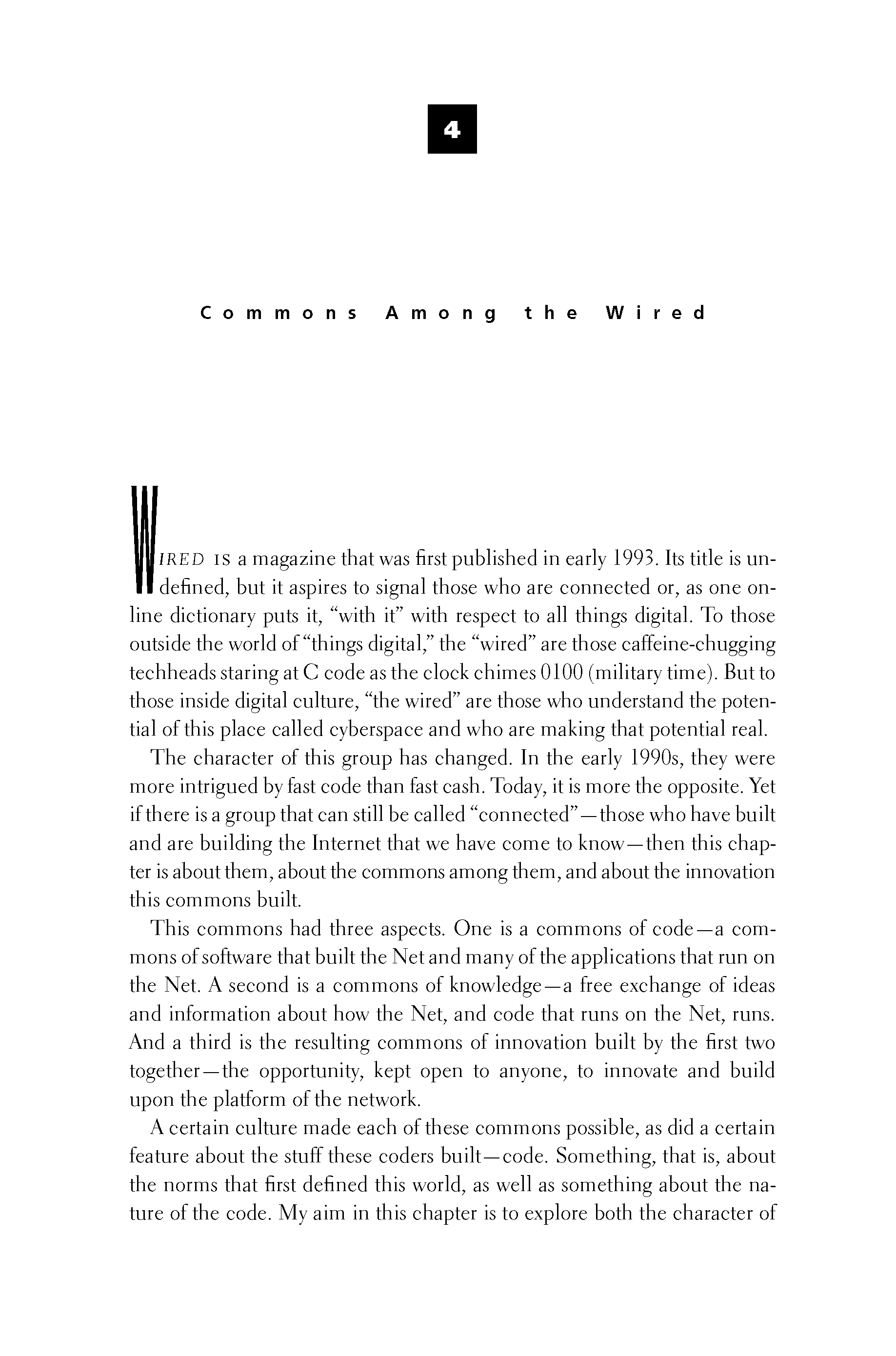 p048 _
-chap- _
toc-1 _
p049w _
toc-2 _
+chap+ _
p050
p048 _
-chap- _
toc-1 _
p049w _
toc-2 _
+chap+ _
p050
_Wired_ is a magazine that was first published in early 1993. Its title is un-
defined, but it aspires to signal those who are connected or, as one on-
line dictionary puts it, "with it" with respect to all things digital. To those
outside the world of "things digital," the "wired" are those caffeine-chugging
techheads staring at C code as the clock chimes 0100 (military time). But to
those inside digital culture, "the wired" are those who understand the poten-
tial of this place called cyberspace and who are making that potential real.
The character of this group has changed. In the early 1990s, they were
more intrigued by fast code than fast cash. Today, it is more the opposite. Yet
if there is a group that can still be called "connected" -- those who have built
and are building the Internet that we have come to know -- then this chap-
ter is about them, about the commons among them, and about the innovation
this commons built.
This commons had three aspects. One is a commons of code -- a com-
mons of software that built the Net and many of the applications that run on
the Net. A second is a commons of knowledge -- a free exchange of ideas
and information about how the Net, and code that runs on the Net, runs.
And a third is the resulting commons of innovation built by the first two
together -- the opportunity, kept open to anyone, to innovate and build
upon the platform of the network.
A certain culture made each of these commons possible, as did a certain
feature about the stuff these coders built -- code. Something, that is, about
the norms that first defined this world, as well as something about the na-
ture of the code. My aim in this chapter is to explore both the character of
[[49]]
p048 _
-chap- _
toc-1 _
p049w _
toc-2 _
+chap+ _
p050